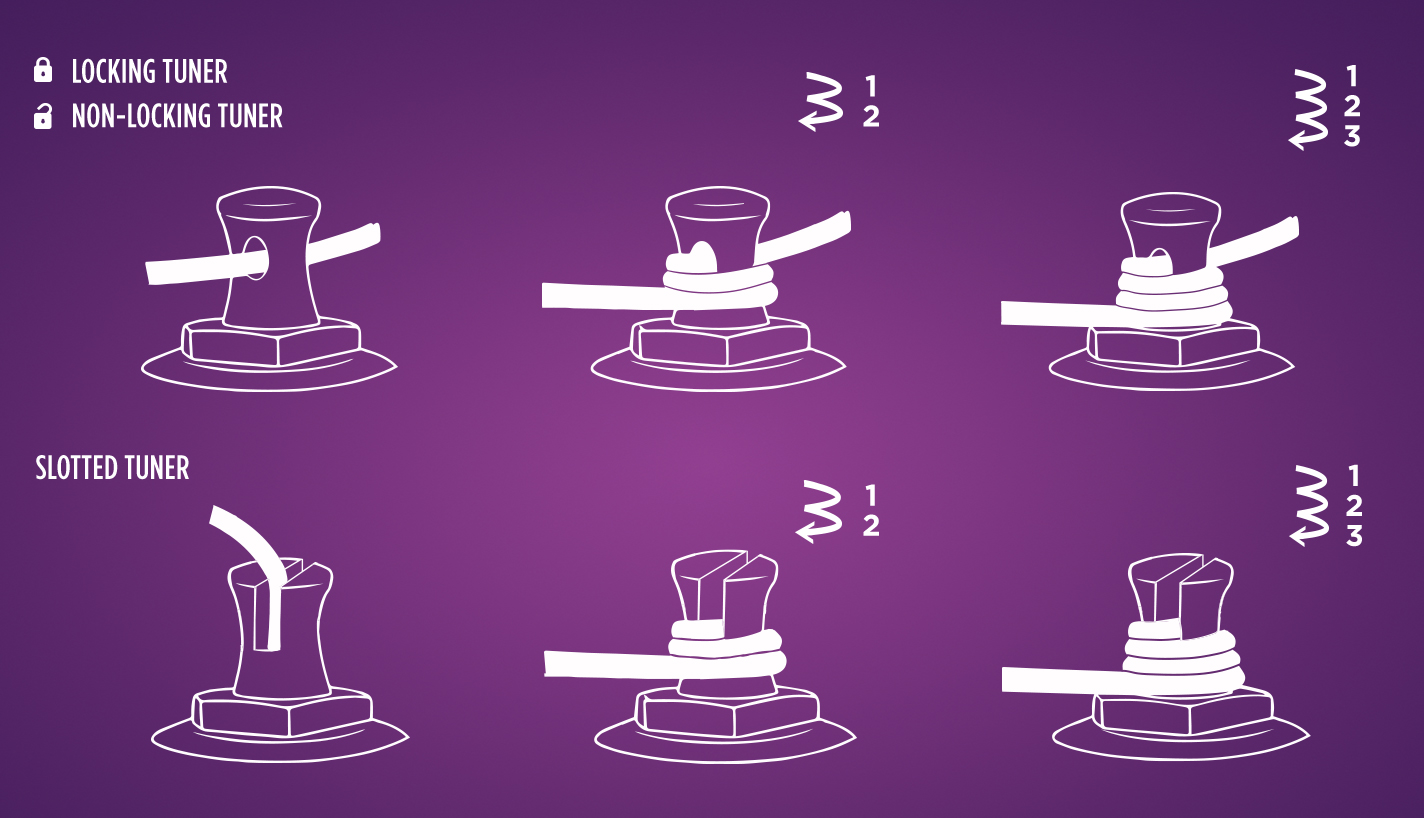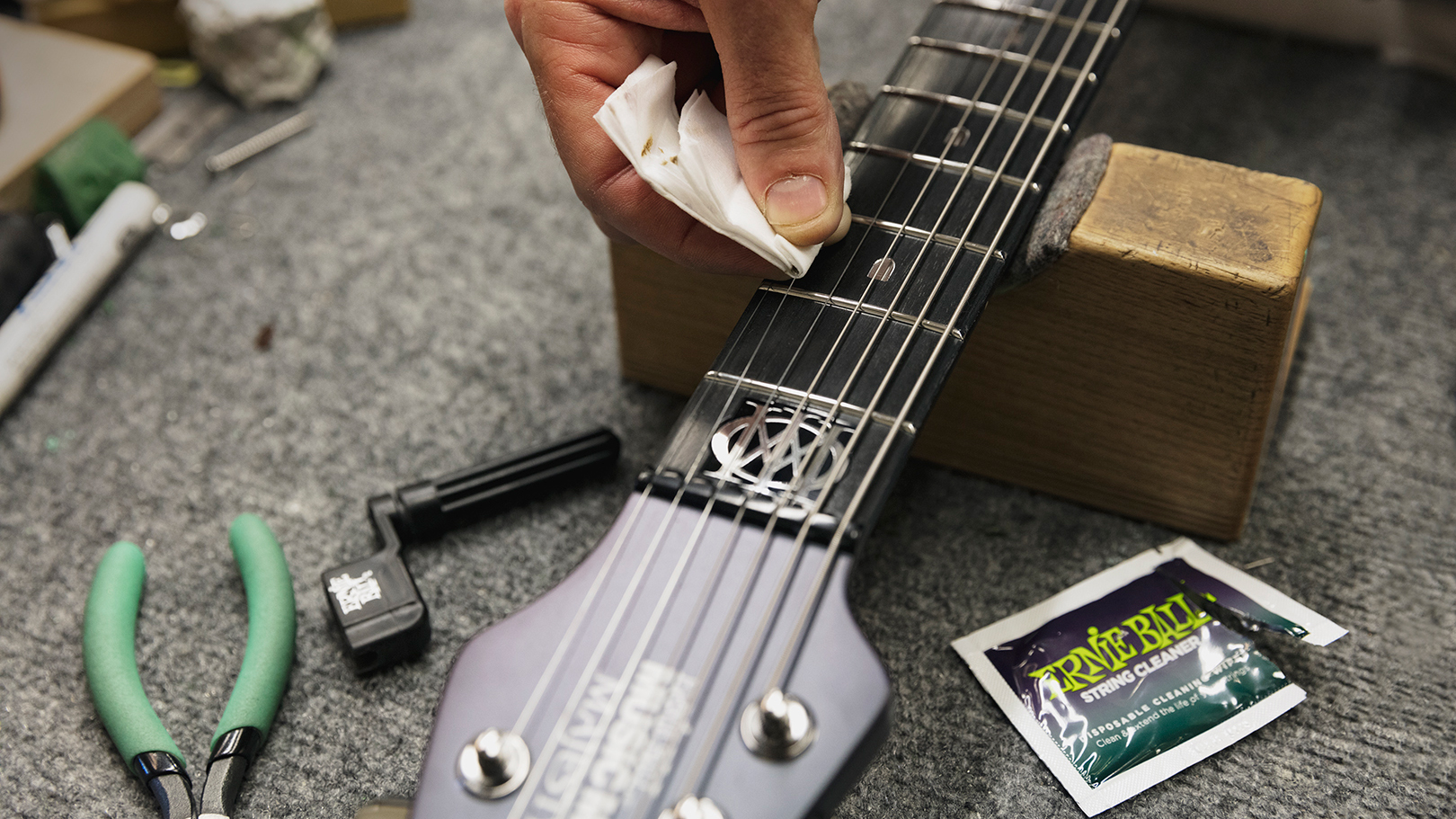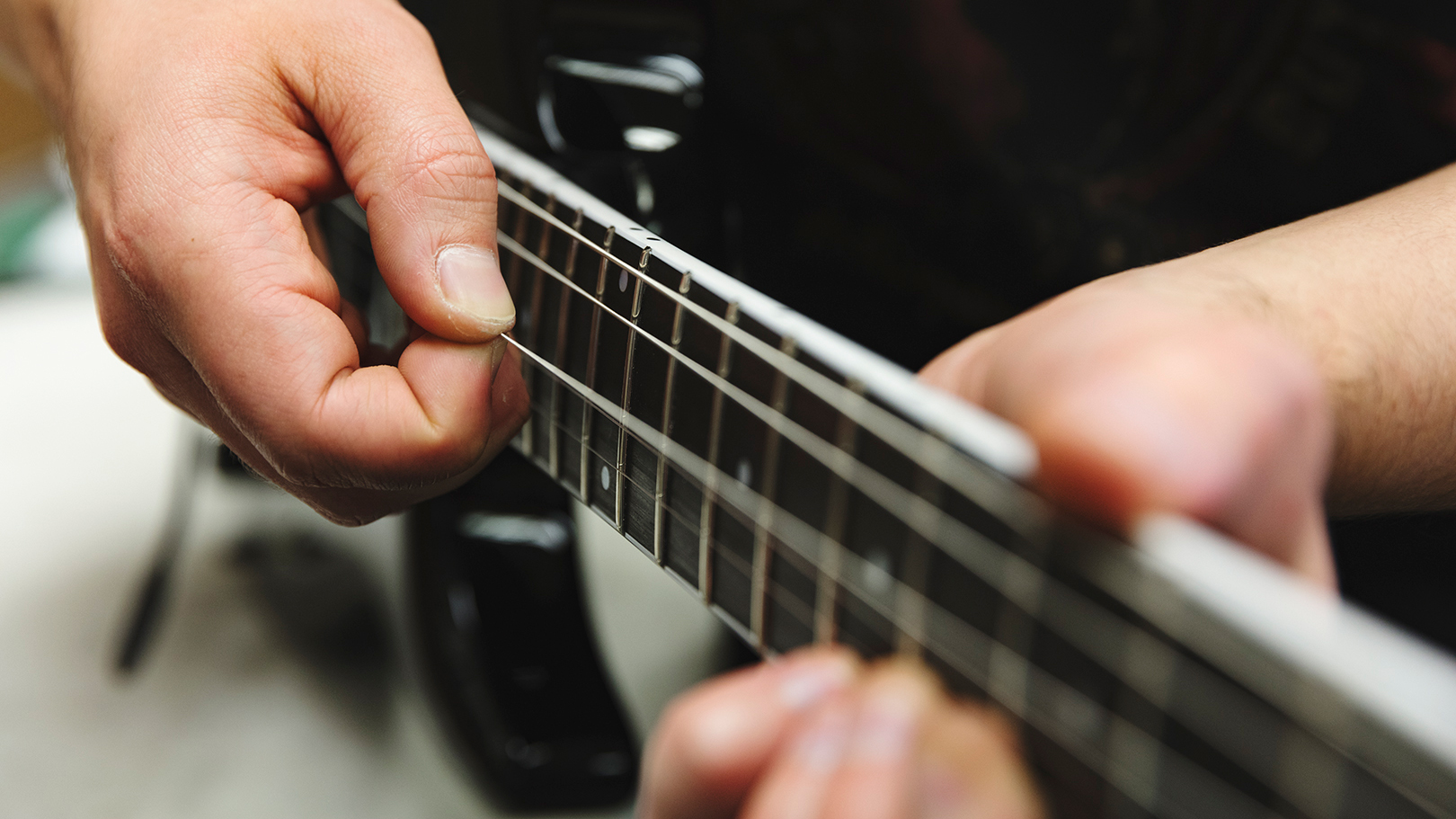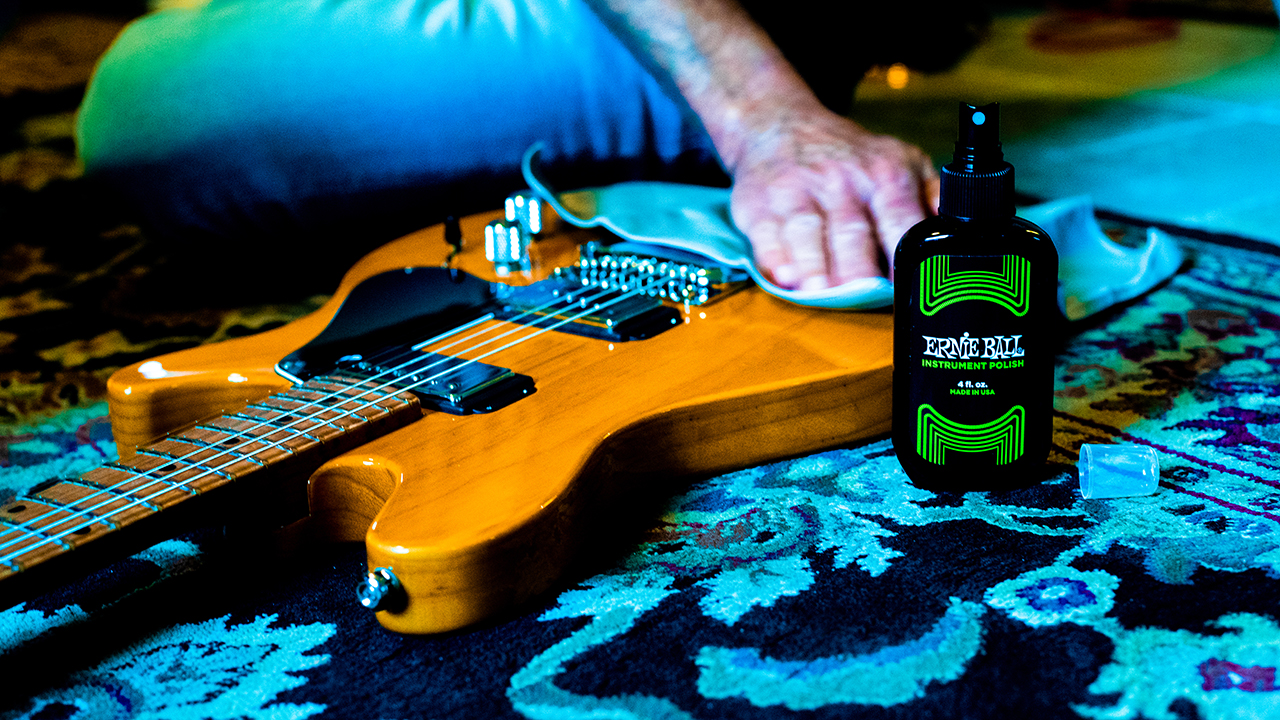As we’re all currently striving to stay as healthy as possible by remaining at home, keeping our environment clean, and fueling our bodies, it’s a good time to take a look around us to see what things could use improvement. Most importantly, let’s talk about the state of your instrument.
Just like the human body, your instrument needs proper care to keep performing to the best of it’s abilities. While most of us will be spending a lot more time at home, now is a great opportunity to properly clean and maintain your instrument. We’re breaking down six simple ways to keep your gear in it’s best possible condition.
1. Proper String Winding
Whether the tuning machines on your instrument are locking or standard, it’s best to allow for at least 3/4 of a turn around the tuner post so that the string’s tension does not terminate at a kink. When wire is kinked, it puts the string at a disadvantage and weakens the wire at that point, which makes strings more prone to breakage. This translates to less risk of breaking strings, whether its from heavy bends or transitioning between alternate tunings. The Ernie Ball CradleTune can help to make this process a breeze by providing a portable work bench-style environment, and the PowerPeg can speed up your string winding by up to 70%.

2. Saddle and Bridge Condition
Saddles are especially prone to developing burrs, which can damage strings causing them to break sooner than they should. A bridge saddle should serve as a smooth point of transition, but over the course of use these metal surfaces can develop burrs, oxidation, and other imperfections. This affects not only string longevity; it also affects tuning.
Unless you have a solid amount of experience, it is recommended to let a professional luthier or tech take care of any repairs or maintenance on your guitar’s saddles. Improper filing or sanding could result in permanent damage to the saddles, bridge or guitar. If you’ve got experience, the Ernie Ball Musician’s Tool Kit includes many tools to help with this sort of maintenance, including a 6-in-1 screwdriver, durable hex wrench set, ruler and more.

3. Nut Condition
Similar to saddles, nut slots should serve as a smooth point of transition, but over the course of use this surface can be a point of binding can lead to shortened string life as well as sub-optimal tuning. Binding can cause string tensions between the nut and tuner to be greater than south of the nut, which places excessive stresses on the string at the tuner post. Make sure the slots are sized appropriately for the strings you’re using. Also, make sure the slots are smooth. Nut lubricant is always a good tool to use to make sure that strings aren’t binding in the nut slots.
Similarly to saddles, unless you have a solid amount of experience, it is recommended to let a professional luthier or tech take care of any repairs or maintenance on your guitar’s nut. Improper filing or sanding could result in permanent damage to the nut, fretboard or guitar. Again, if you’ve got experience, the Ernie Ball Musician’s Tool Kit includes many tools to help with maintenance of this nature.
4. String Cleanliness
A clean string is a happy string. Just a few moments spent cleaning strings after use can save you plenty of trips to the store and money spent on strings. A simple wipe down with a polish cloth does a great job, but the best job is done using a string cleaner such as Ernie Ball Wonder Wipes to adequately penetrate all of the windings and crevices, removing that pesky finger cheese that robs tone and causes strings to oxidize. No one wants to be stuck playing strings that smell like an old penny jar or yesterday’s Del Taco leftovers. Plus, if your strings stink, then your fingers will probably stink after playing too.

5. Picks
The type of guitar pick that you’re using, in addition to the condition of the pick, can also be a factor in string breakage. If you’re playing with particularly heavy picks, especially if they’ve been worn down to a sharp edge, you could be damaging your strings with every pluck or strum. Be sure to occasionally check the condition of your picks; much the same way you don’t want to drive a car with a flat tire, playing a guitar with a pick that’s worn out could result in unwanted trouble. Ernie Ball offers a variety of different guitar picks to keep your playing fresh.

6. String Stretching
Properly stretching a new set of strings is a good idea not only to ensure tuning stability, but it also helps your strings settle into their nut and saddle slots properly. This, in turn, cuts down on the likelihood that your strings will break due to friction or a sharp edge.
Keep in mind, more is not always better when it comes to string stretching. The goal is to stretch your strings enough so that they settle to pitch, but overshooting can cause strings to actually break or sound dull more quickly.

Though no set of strings can last forever, you’ll be able to maximize the mileage you get out of each set by following these steps. You can also try a set of our Paradigm strings, which features our Everlast nano treatment with breakthrough plasma enhanced wrap wire — providing added corrosion resistance and reduced accumulation of tone-robbing buildup and debris. Find your pack here.

Watch
Want even more tips for keeping your gear healthy? Check out our friend Ryan “Fluff” Bruce discussing five things you can do to keep your guitar in its best shape.



